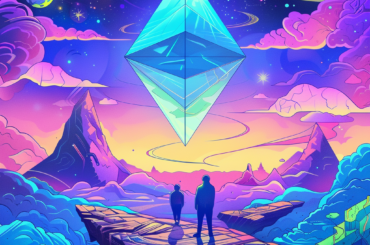We all know that the biggest industry on the internet is attention, everyone is competing for our attention: Google, Facebook, Amazon, Microsoft… you name it. Saving our data is so valuable for them because it predicts our behavior and gives them an indication of what we want.
Attention is the most valuable commodity in Web2 companies. The way to get it is their monetization strategy and their most guarded secret.
It goes both ways. How do you determine if certain social media is good for you? If it keeps you entertained with more content that will grab your attention. Most people think that’s some kind of evil technique to control their minds but actually, that’s what everyone is looking for. This dopamine dose that you get from scrolling through videos is exactly what you wanted when you opened the app in the first place. The social media companies know that and monetize it for profit by showing you ads.
Back when it first started, it was a win-win situation for both sides, they will make it easy and accessible for us to enjoy personalized content on their app, in exchange for showing us ads. In order for them to monetize the attention we give them, they are using the same algorithm that helps them determine what will get you intrigued next. Sometimes it feels like they are doing it so well it’s like they can hear what you’re saying, but it’s not the case, they are just gathering data about you from wherever they can and predict what ad will drive you to action(just like they predict what video will get your attention).
Their business model is the balance between those two things, grab our attention with content, sell this attention to advertisers.
So now that we understand why the Attention-Grabbing algorithm(content targeting algorithm) is the most guarded secret of every social media, let’s raise another big question. If this algorithm is such a secret, how would it become decentralized and transparent like expected on Web3? If it will be open-sourced, they will lose the advantage they currently have and they will face some serious issues( like other companies could copy them easily, users could bypass censorship, manipulate the algorithm in their favor, and more).
Pretty tricky ah? I would say we are miles away from making Web2 disappear completely, and the current age of centralization has advantages we can’t ignore, and Web3 has not offered a viable solution so far.
Companies working on services for profit, hosting it on their servers, was the best accelerator for the tech industry as we know it today. Just look at Facebook, Google, Airbnb, Uber…(and the list goes on). That will not vanish in a day, and to be realistic, I don’t know if anyone can predict with accuracy what the future of Web3 will look like. We can only speculate on the solutions that exist today and how they are going to make everyone’s lives better.
Web3 came from the necessity of bringing the power back to the users, and that can be done only in phases. Understanding the current problems in the marketing industry is essential for tailoring a working solution to make this transition. Instead of decentralizing the social media itself(or any other ad-based tech company), which is extremely hard and has tons of unsolved obstacles, we can outsource the monetization piece alone, the ad networks, from the equation and make it transparent and fair. By disrupting only that part, the ad networks, making it decentralized, we are helping the entire internet make the transition seamless and smooth.
In the next article, I’ll go into detail about how this Web3 transition solves major problems in the tech industry that will disarm the monopolies from their absolute control over the 400B$ marketing industry, and why it’s already out of their control or should I say inevitable.
Stay tuned for part 2.
Best,
Adir Buskila





